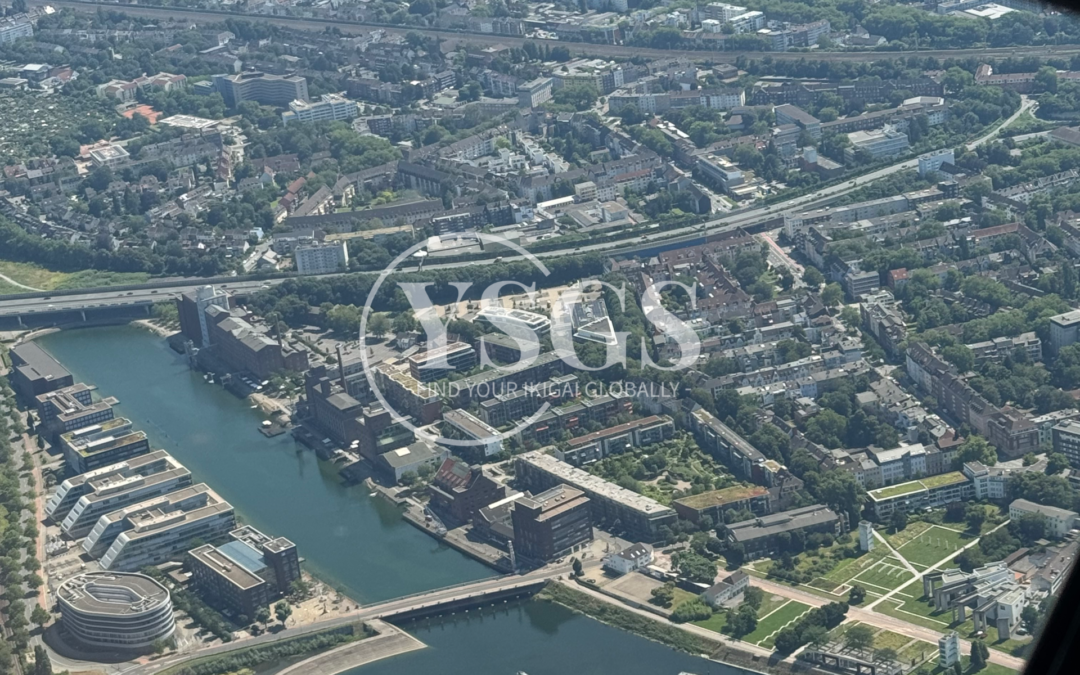Germany is an ideal business location due to its central position in Europe, strong and diverse industries, and a highly skilled workforce. It offers excellent logistics, a supportive business environment with various incentives, and a high quality of life. Additionally, Germany’s cultural affinity with Japan and its leadership in innovation and research make it particularly attractive for Japanese companies.
- International Executive Recruitment Specialist for local management placements in Germany
- 15 years of experience as executive search, recruitment, and headhunting consultants in
- Tokyo, Japan for 1 year
- Bangkok, Thailand for 10 Years
- Düsseldorf, Germany for 4+ Years
- Currently based in Duisburg, Germany
Table of Contents
1. Advantages of Location
Germany is located in the middle of Europe and borders nine countries (Denmark, the Netherlands, Belgium, Luxembourg, Austria, Switzerland, France, the Czech Republic and Poland). The airports of Frankfurt, Munich and Düsseldorf, with domestic and international flights, offer convenient connections to the rest of Europe, the Middle East and Asia. The country has well-developed land, air and maritime logistics, allowing for the import, export and transport of a wide range of goods.
2. Diverse industries contributing to a strong economy
Germany has the third largest GDP in the world (Statista).
There are many world-leading German companies with high technological capabilities in a wide range of areas such as automobiles, chemicals, electrical and electronics, steel, etc. German companies such as VW, BMW, Daimler, BASF, Bayer and Siemens are probably familiar to the Japanese. In recent years, lithium-ion batteries, semiconductors for electric vehicles, factory automation and robotics have become hot industries due to the spread of electric vehicles and the automation of production.
3. A pool of highly skilled professional talent
In Germany, it is possible to study for a bachelor’s, master’s or doctoral degree at almost no tuition fees in public universities. The same opportunities are available to international students, and the world-class education attracts highly qualified students from all over the world, especially engineers and other science majors. 46% of all higher education graduates in Germany have a master’s or doctoral degree. Many universities also require vocational training or internships as a prerequisite for obtaining a degree, so 80% of all graduates have received some form of vocational training in their field of specialisation, which means that even new graduates have a lot of potential for immediate employment. (destatis)
4. The highest number of Japanese companies in Europe
According to the European section of the December 2023 Survey of Japanese Companies Operating Abroad (JETRO), the number of companies operating in Germany out of 830 valid responses was 260, more than 30% of the total, ranking first by a huge margin over the 98 companies in the UK (second) and 84 in the Netherlands (third). After Brexit, many companies that previously had their European headquarters in the UK have also moved to Germany and the Netherlands. In Düsseldorf, where there are many Japanese companies in particular, there are offices of JETRO, the Japanese Chamber of Commerce and Industry, the Japan-Germany Industrial Association and other organisations that promote friendly business relations between Japan and Germany. Many Japanese companies have established subsidiaries in Germany and manage their business regionally in Europe from Germany.
5. Germany shows a strong admiration for Japanese culture and business, emphasizing notable similarities with Japan
Among European countries, Germany has a particularly pro-Japanese population, with many students studying Japanese at university, many who have been on working holidays in Japan, and many who are interested in Japanese culture and subcultures and grew up watching Japanese anime. Japanese food is also very popular, and Japanese restaurants are increasing not only in Düsseldorf, where many Japanese people live, but also in Berlin and Hamburg.
In addition, when working or doing business with Germans, there are many similarities with Japanese business culture, such as rule-keeping, meeting deadlines and being on time for appointments, being strict about written contracts and numbers, and from personal experience, I feel that they are easy to work with.
6. Innovation and Research Excellence
Germany is a global leader in research and development (R&D), investing heavily in innovation. The country is home to numerous research institutions, such as the Max Planck Society and the Fraunhofer Society, which collaborate closely with industries. This strong emphasis on R&D fosters a culture of innovation, making Germany an ideal location for companies looking to develop cutting-edge technologies and products.
7. Supportive Business Environment
Germany offers a supportive business environment with a range of incentives for foreign companies such as NRW. Ventures or Arbeitsargentur. These include grants, loans, and subsidies for R&D projects, as well as tax incentives for businesses investing in specific regions or sectors. The government also provides support through various programs aimed at helping startups and small to medium-sized enterprises (SMEs) grow and succeed.
8. High Quality of Life
Germany is known for its high quality of life, which can be a significant factor for companies considering relocation or expansion. The country offers excellent healthcare, education, and public services, as well as a rich cultural scene and beautiful landscapes. This makes it an attractive destination for employees and their families, contributing to higher employee satisfaction and retention.
Please do not hesitate to contact us if you have any questions regarding recruitment in Germany/Europe. We will be happy to provide you with the latest market trends and information based on our own recent recruitment experience.



